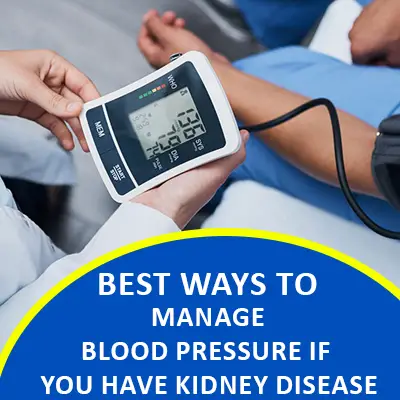What is chronic kidney disease?
Chronic kidney disease means the kidneys have got damaged because of certain conditions such as diabetes, high blood pressure, pyelonephritis or Glomerulonephritis. As a result, kidneys are less able to complete their job, including:
• Removal of waste from the body
• Maintenance of fluid and electrolyte balance in the body
• Blood pressure control
• Hormones production
• Maintain bones
• Prevent anemia
• Keep the right amount of chemical compounds such as sodium, potassium or calcium
When kidneys do not work well enough as they are supposed to, waste starts building inside the blood, making the patient feel miserable at times. Even before renal failure, an individual may feel several complications in the body. Kidney disease also makes a person susceptible to renal failure, if early detection or treatment is not initiated.
What is high blood pressure?
Hypertension or high blood pressure is the pressure of blood in opposition to blood vessels. With high blood pressure, the heart has to work hard in order to transmute the blood.
How CKD and high blood pressure are related to each other?
High blood pressure is the second leading cause of CKD after diabetes. High blood pressure or hypertension can worsen kidney disease by damaging the blood vessels of the entire body. The condition reduces the blood supply to the important organs including the kidney. With low blood flow, kidneys may not be able to sieve out toxins as they are intended to. Besides, the high blood flow damages the tiny filtering units in the kidneys.
Also, high blood pressure is a complication of kidney disease as well. Our kidneys play an important role in keeping an adequate range of blood pressure but, when they have decreased function, kidneys are not able to keep maintain that healthy range thus, blood pressure increases.
What is ideal blood pressure and how can you know to measure it?
High blood pressure usually causes no symptoms, apart from making you feel dizzy, tired, and weak. The blood pressure is measured with the help of a BP cuff tied around the arm. The top number on the blood pressure machine denotes the pressure with which your heart is beating while the bottom number indicates the pressure when the heart is resting between beats.
An ideal BP in healthy adults 18 years or older is less than 120/80. But if the range is above that (both in the top number and bottom number), it likely means high blood pressure and medications are needed to prevent it.
Those with CKD, a blood pressure of 130/8o is considered high.
What are the best ways to manage blood pressure if you have CKD?
The best way to achieve your blood pressure goal is to work on your lifestyle and dietary habits. These include:
Healthy eating
Adopting a healthy eating regimen can help to lower blood pressure. Your dietician may recommend you to focus on fruits, vegetables, whole grains, and other foods that are good for your blood pressure. The dietary eating plan includes:
• Cutting sodium intake: Try not to have more than 2400 mg of sodium each day.
• Restrict foods that are high in saturated fats and cholesterol
• Carbohydrates are the types of food that turn to sugar after digestion. Hence, should be avoided
• Also, control the amount of protein in your diet
• Reduce the content of potassium
• Consume few phosphorus
Physical activity
Regular physical activity can help lower increased blood pressure and reduce the risk of various cardiovascular diseases. Consult your doctor about the type of exercise you can do to maintain your blood pressure and simultaneously improve your kidney’s function. An individual should try to get approx 30 to 34 minutes of physical activity on a regular basis. This might include brisk walking, dancing, working, riding a bicycle, bowling, etc.
Maintain weight
If you are overweight, know that the risk of hypertension increases with putting on weight. A BMI of less than 25 should be the goal for keeping blood pressure under control.
Smoking
If you have high blood pressure and still you are onto smoking then it is the high time you should skip this habit for better kidney health. Smoking can hurt the blood vessels of the heart, lungs, and kidneys.
Ayurvedic Medications
Consume ayurvedic medicines to lower blood pressure and decrease the risk of CKD. The ayurvedic medicines work on the underlying cause of the condition and thus eliminate the problem completely. Some of the herbs that are used in the ayurvedic medicines for lowering blood pressure are Punarnava, Passionflower, Hawthorn berry, etc.
If you want to explore more about CKD and related problems and their related ayurvedic kidney disease treatment, consult Karma Ayurveda Hospital!






